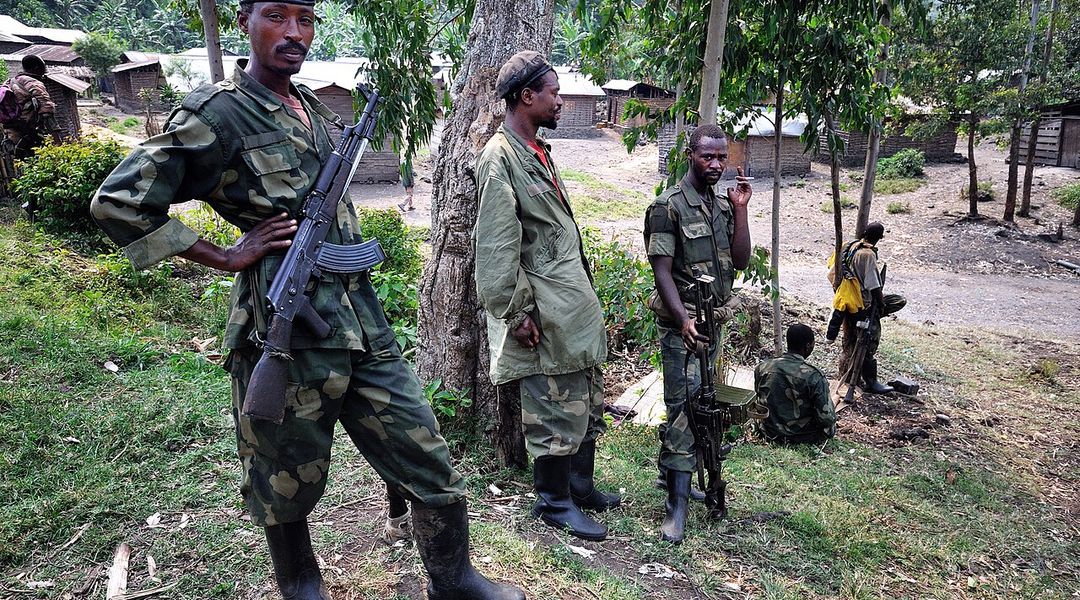Catholic and Protestant churches in the Democratic Republic of the Congo are
pushing for mediation as conflict escalates in the country’s east. Their
efforts to engage all parties, including President Félix Tshisekedi and M23
rebels, face resistance from a government unwilling to negotiate with
insurgents.
Congolese Cardinal Fridolin Ambongo of Kinshasa pledged on Feb. 9 to “talk with everyone, even if they live on the moon.” Backed by the National Episcopal
Conference of Congo (CENCO) and the Church of Christ in Congo (ECC), the
nation’s two largest Christian organizations, this mediation effort aims to
bring warring factions to the negotiating table. However, it has failed to gain traction so far as M23 rebels continue their advance through the highlands of
South Kivu.
A red line for Kinshasa
The church-led peace push began Feb. 3, when a delegation
led by Cardinal Ambongo met with President Tshisekedi in Kinshasa. They
presented him with a “social pact for peace and coexistence” in both Congo and
the broader Great Lakes region. Initially, the president seemed open to the
initiative. “He listened carefully, asked clarifying questions, and wanted to
understand how it aligned with the ongoing peace processes in Luanda and
Nairobi,” said Monsignor Donatien Nshole, CENCO’s secretary general.
But tensions escalated when the church delegation traveled to Goma on Feb.
12 to meet with Corneille Nangaa, leader of the Congo River Alliance (AFC), a
political-military movement with M23 as a key component. The Congolese
government considers M23 a terrorist group, making talks with its allies a
sensitive issue.
“The president initially supported the initiative, but as soon as it gained
momentum, the government distanced itself, saying the delegation had no mandate
and that there would be no negotiations with M23,” said Father Jean-Marie
Bomengola, a communications expert at the Catholic University of Congo. “From
Kinshasa’s perspective, talking to rebels legitimizes their actions. The
government blames Rwanda for orchestrating the conflict to exploit Congo’s
resources. Negotiating with M23, they argue, means accepting Kigali’s
influence. But how can mediation succeed if it excludes key players? Dialogue
is the only way forward.”
Bomengola suggested some ruling party members privately back the initiative,
while opposition figures see it as a potential political opportunity.
Regional and international support
Despite the government’s resistance, church leaders pressed on. After
visiting Goma, they traveled to Kigali, where they met Rwandan President Paul
Kagame. According to Nshole, Kagame encouraged intra-Congolese dialogue and
discussions at a regional level. The delegation then headed to Kenya, where
President William Ruto, the current chair of the East African Community,
reportedly pledged his support.
International backers have also rallied behind the initiative. Catholic
bishops from Congo, Burundi, and Rwanda—united under the Central African
Episcopal Conferences Association (ACEAC)—urged armed groups on Feb. 26 to
“stop pursuing their demands through violence, which kills their own brothers
and sisters.”
“The National Episcopal Conference of Congo and the Church of
Christ in Congo have the backing of Western diplomats and international
organizations, including the European Union, African Union, and United Nations,”
Father Bomengola said. “The church speaks with truth and transparency, whereas
political discourse is driven by interests and calculations. Even with
cross-border support, the initiative faces resistance from a government wary of
exposing its vulnerabilities.”
